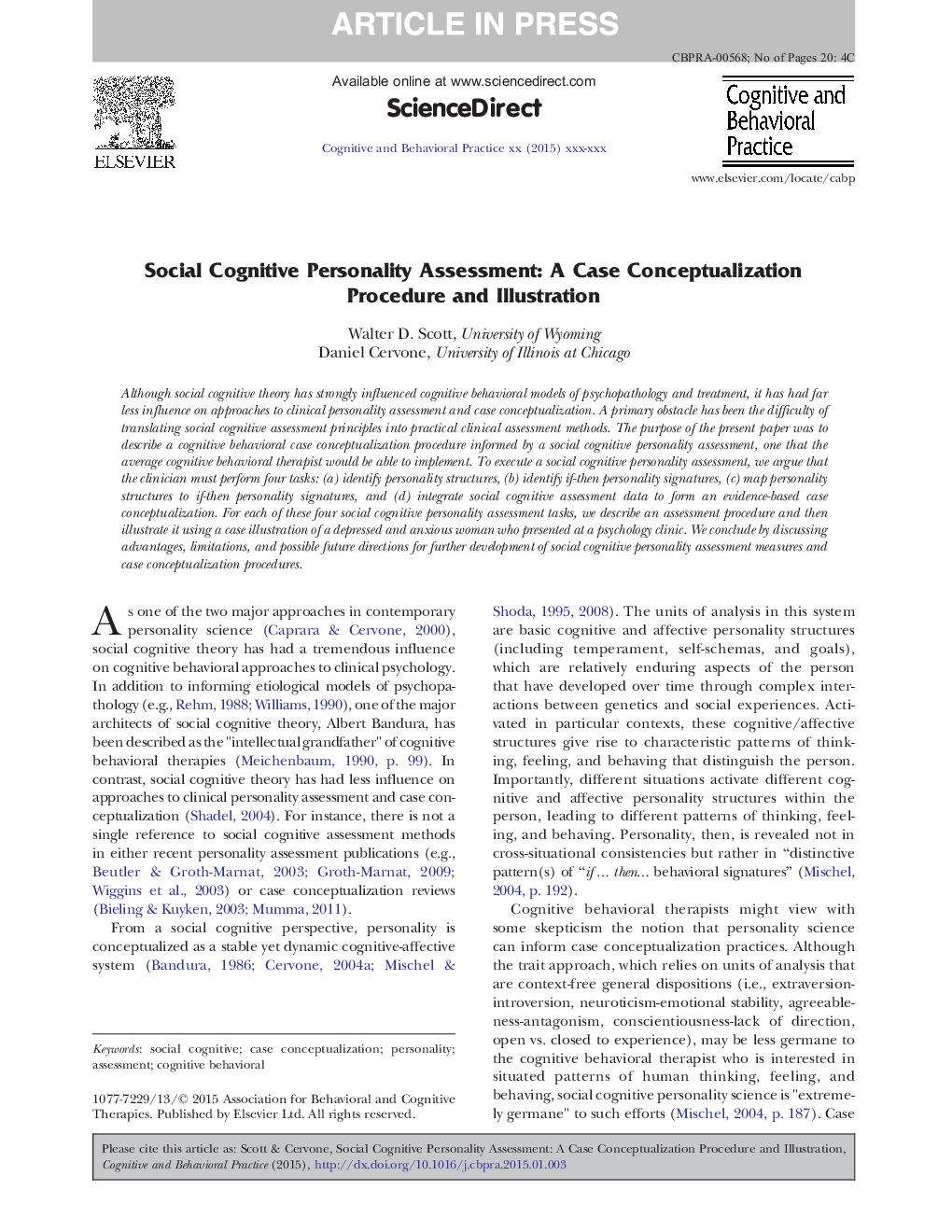| Article ID | Journal | Published Year | Pages | File Type |
|---|---|---|---|---|
| 10446154 | Cognitive and Behavioral Practice | 2016 | 20 Pages |
Abstract
Although social cognitive theory has strongly influenced cognitive behavioral models of psychopathology and treatment, it has had far less influence on approaches to clinical personality assessment and case conceptualization. A primary obstacle has been the difficulty of translating social cognitive assessment principles into practical clinical assessment methods. The purpose of the present paper was to describe a cognitive behavioral case conceptualization procedure informed by a social cognitive personality assessment, one that the average cognitive behavioral therapist would be able to implement. To execute a social cognitive personality assessment, we argue that the clinician must perform four tasks: (a) identify personality structures, (b) identify if-then personality signatures, (c) map personality structures to if-then personality signatures, and (d) integrate social cognitive assessment data to form an evidence-based case conceptualization. For each of these four social cognitive personality assessment tasks, we describe an assessment procedure and then illustrate it using a case illustration of a depressed and anxious woman who presented at a psychology clinic. We conclude by discussing advantages, limitations, and possible future directions for further development of social cognitive personality assessment measures and case conceptualization procedures.
Related Topics
Health Sciences
Medicine and Dentistry
Psychiatry and Mental Health
Authors
Walter D. Scott, Daniel Cervone,
